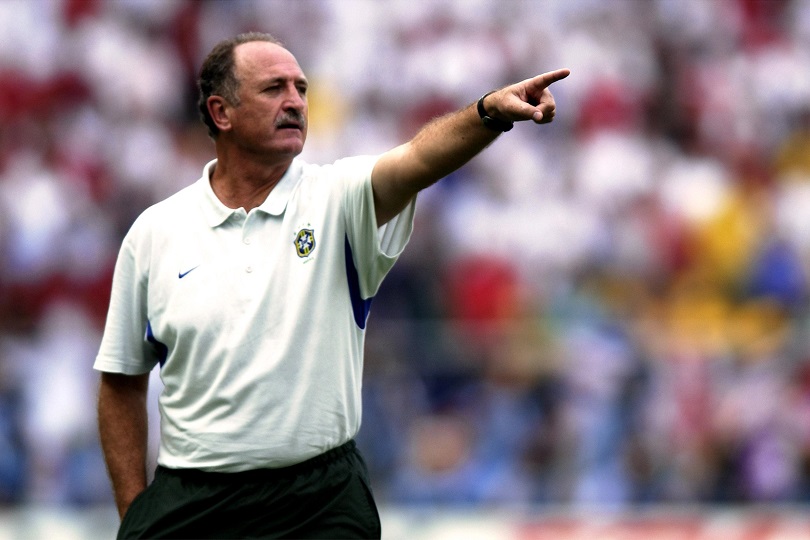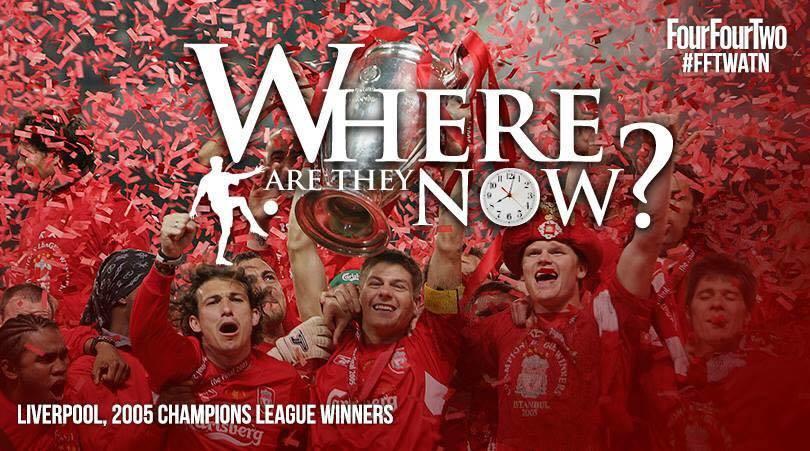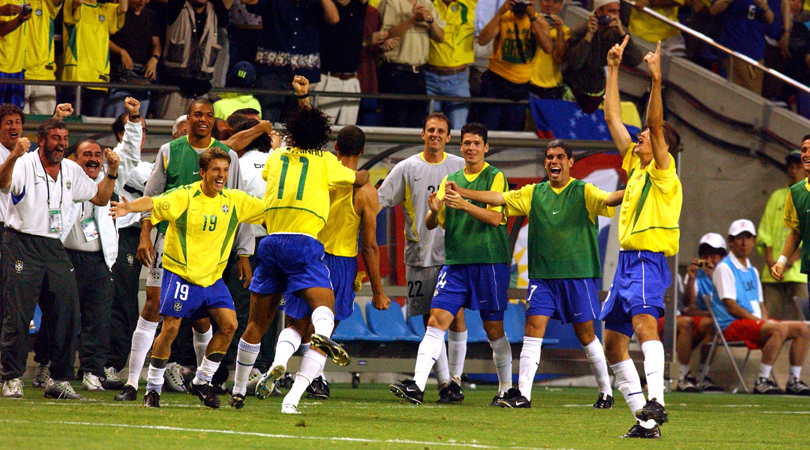
Marcos
He turned in a series of secure displays between the posts as Brazil sealed the trophy
The charismatic stopper got the nod over Dida and Rogério Ceni, and repaid the faith with a series of secure displays between the posts as Brazil sealed their pentacampeonato. He was later named among the tournament's top three goalkeepers, alongside Oliver Kahn and Turkey's Rüstü Reçber.
His performances in the Far East led to interest from Europe and for a time he looked destined for a move to Arsenal, who were in the market for a David Seaman replacement. But with a contract offer on the table, Marcos had a change of heart and decided to remain at Palmeiras, helping them to bounce back from a shock relegation.
He went on to play over 500 times for the São Paulo side, earning the nickname 'São Marcos' (Saint Marcos). He's worked as a club ambassador since his retirement in 2012.
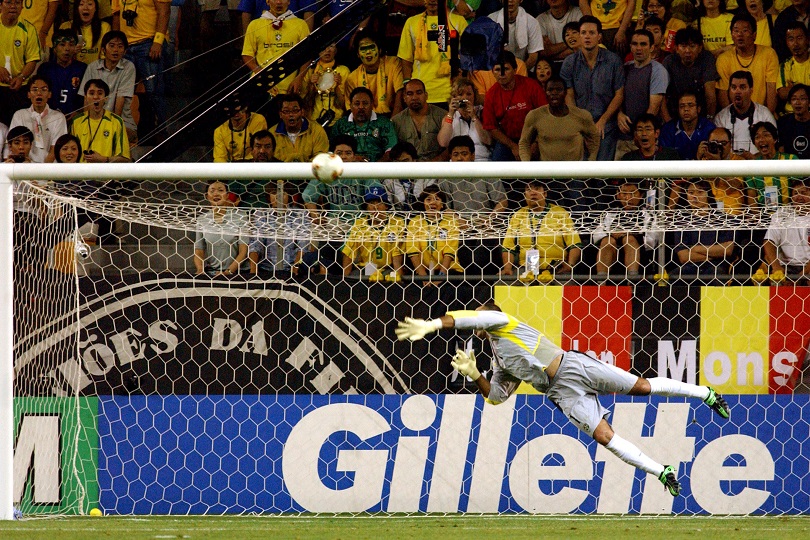
Lúcio
The defender played in two more World Cups, captaining Brazil in 2010, and enjoyed huge success at club level with Bayern Munich and Inter
What stands out now about Brazil's back three in Japan and South Korea is just how young they were: Lúcio was 24, Edmílson and Roque Júnior just a year older. All, though, had the faith of Luiz Felipe Scolari, and fitted into his 3-4-1-2 system perfectly.
Lúcio was just 18 months into his career in Europe, but had already begun to make an impression at international level by scoring in the Champions League final against Real Madrid. A month later, he became the first player from Brasília to play for the Seleção at the World Cup, catching the eye with his power and ability to bring the ball forward. It was his mistake that allowed Michael Owen to score in the quarter-final meeting with England, but Scolari stood by his man and was rewarded with a strong display in the final.
The best features, fun and footballing quizzes, straight to your inbox every week.
The defender played in two more World Cups, captaining Brazil in 2010, and enjoyed huge success at club level with Bayern Munich and Inter. He returned to Brazil in 2013 and currently turns out for FC Goa in the Indian Super League, at the age of 38.
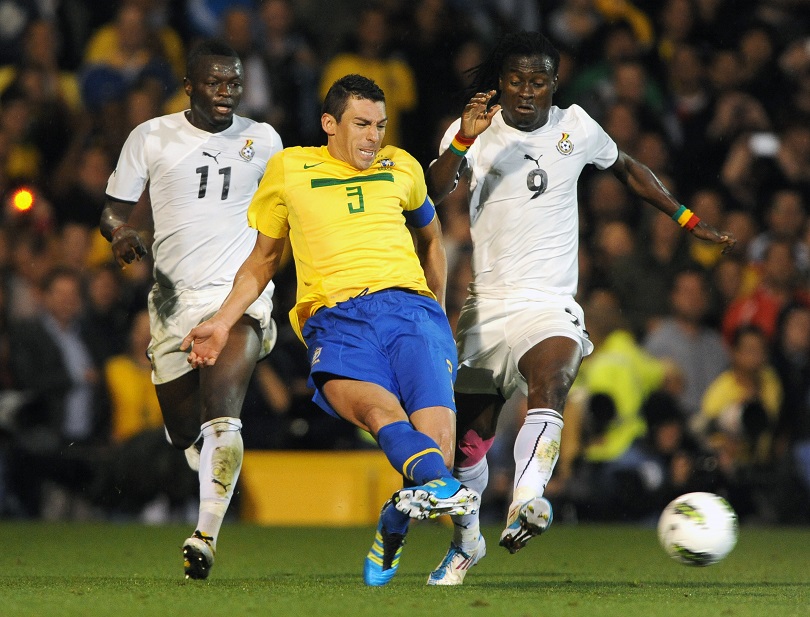
Edmílson
A switch to Barcelona yielded one Champions League and two La Liga medals, but subsequent spells at Villarreal, Palmeiras and Real Zaragoza proved less fruitful
A calm, dependable type capable of playing at centre-back and in midfield, Edmílson helped kickstart a staggering era of dominance at Lyon after moving from São Paulo in 2000 – playing his way into Brazil's side en route. After being left out of the 4-0 win over China in the group stage, he returned against Costa Rica and marked the occasion by scoring with a stunning overhead kick.
A switch to Barcelona yielded one Champions League and two La Liga medals, but subsequent spells at Villarreal, Palmeiras and Real Zaragoza proved less fruitful. Now back in Brazil, he took part in TV show Menino de Ouro (think an X-Factor for aspiring footballers) and currently works as a commentator for Esporte Interativo.
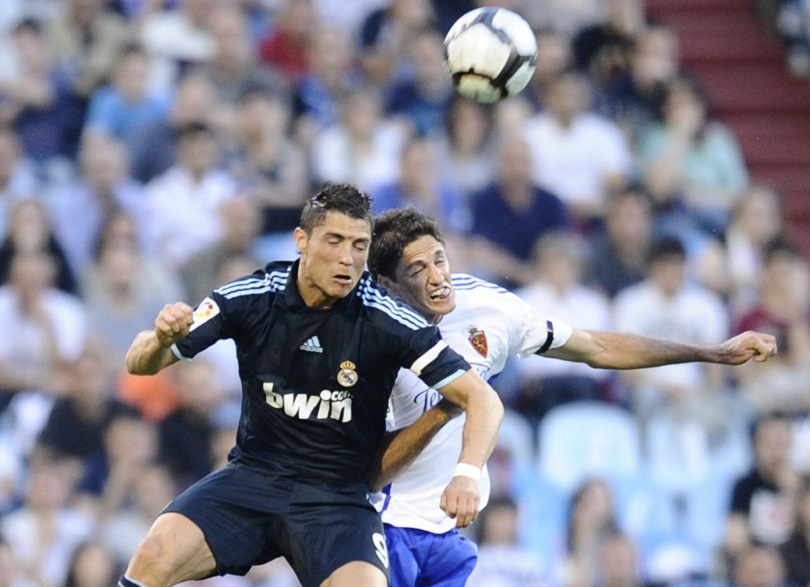
Roque Júnior
What the man from Minas Gerais state lacked in finesse, he made up for in heart and determination – two of Scolari's watchwords
To most European fans, Roque Júnior was the clear weak link in Brazil's side going into the tournament. The defender had failed to live up to expectations since joining Milan from Palmeiras in 2000, struggling with the technical demands of the Italian game. But what the man from Minas Gerais state lacked in finesse, he made up for in heart and determination – two of Scolari's watchwords. He was a trusted footsoldier throughout the World Cup.
After the tournament, his career took on a nomadic quality: there were loan spells at Leeds and Siena, a decent season at Bayer Leverkusen, and short stints at Duisburg, Al-Rayyan, Palmeiras and Ituano, where he retired in 2010.
Since then, he's had a couple of coaching jobs: firstly in Scolari's backroom staff at the 2014 World Cup, then an ill-fated month in charge of São Paulo minnows XV de Piracicaba, during which they lost five of six games.
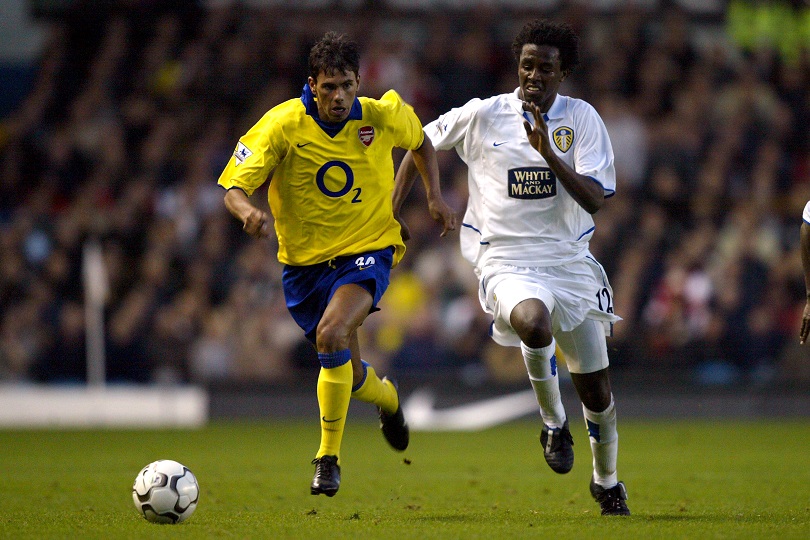
Cafu
He remains the only player to have appeared in three World Cup finals and now looks after a few business interests
Forever smiling and forever bombing forward, Cafu was already a household name before captaining his country in Japan and South Korea. But the loveable wideman – who started his career as an attacking midfielder in Brazil before adapting to full-back and wing-back roles in Europe – cemented his place in the pantheon of Seleção greats when he followed in the footsteps of Bellini, Mauro Ramos, Carlos Alberto and Dunga by lifting the World Cup trophy aloft in Yokohama.
He wouldn't have been on the podium were it not for a freak pre-tournament injury to Emerson, but Cafu certainly grasped his moment in the spotlight, shouting a message for his wife ("Regina, I love you!") when the ticker tape was flying and revealing a t-shirt whose message ("100% Jardim Irene") referenced his humble beginnings in São Paulo.
He remains the only player to have appeared in three World Cup finals and now looks after a few business interests. FFT saw him at a samba concert in London a couple of years ago and can confirm he's enjoying his retirement.
Gilberto Silva
He played an important role in the formation of Bom Senso FC, a de facto footballers' union set up to drag Brazilian football into the modern era
A surprise inclusion in the squad, Gilberto profited from Emerson's absence to make the defensive midfield berth his own. Things clicked perfectly, his positional diligence allowing the team's more expressive players freedom to cut loose.
He wasn't short of suitors after the World Cup, but it was Arsenal who won the race for his signature after ironing out a few contractual issues. "What I like was the fact that he kept things simple," said Arsene Wenger, under whom Gilberto won the Premier League title and two FA Cups before moving to Panathinaikos.
He returned to his homeland for quietly impressive spells with Grêmio and Atlético Mineiro, and played an important role in the formation of Bom Senso FC, a de facto footballers' union set up to drag Brazilian football into the modern era. He now juggles media and charity work, and also has a giant anteater named after him at London Zoo.
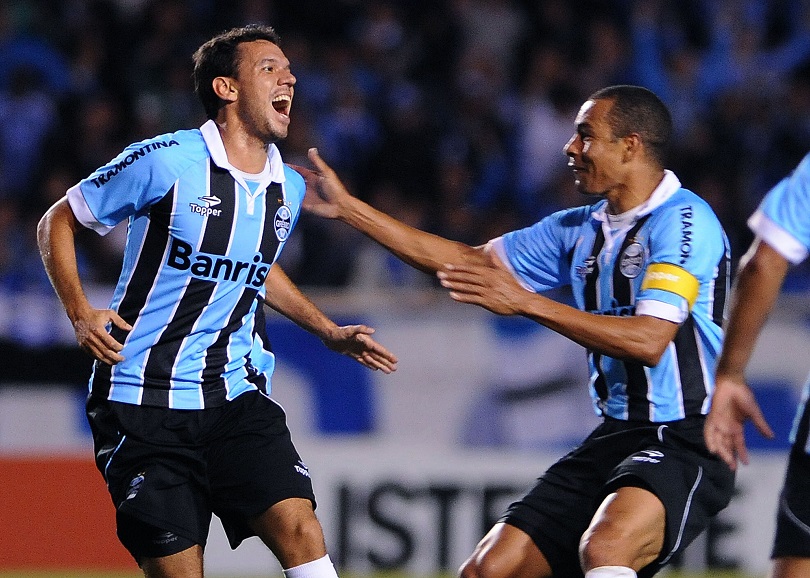
Kléberson
Just when it appeared his career might be petering out, he rediscovered his mojo back in Brazil with Flamengo, winning the Brasileirão in 2009
One of the stars of Atlético Paranaense's surprise Brazilian title win in 2001, the energetic midfielder started the tournament as a back-up option, but was drafted in against England and never surrendered his place. He hit the bar early on in the final and helped set up Ronaldo's second goal with a surging run down the right.
He remained in Curitiba until a year after the World Cup, when he became the first Brazilian to sign for Manchester United. But Kléberson was unable to produce his best from on a consistent basis at Old Trafford, nor for Besiktas, who offered him an escape route in 2007.
Just when it appeared his career might be petering out, he rediscovered his mojo back in Brazil with Flamengo, winning the Brasileirão in 2009 and sneaking into Dunga's squad for the World Cup in South Africa the following year. Now 37, he plays for Fort Lauderdale strikers in the North American Soccer League.
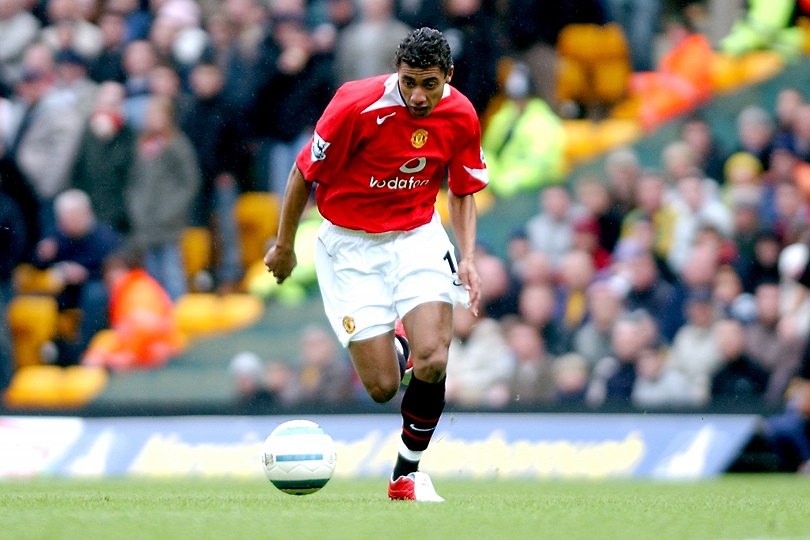
Roberto Carlos
The man with the three-trunk thighs was a brilliant outlet on the left throughout the tournament, and remained a pillar of the side until the 2006 World Cup
The man with the three-trunk thighs was a brilliant outlet on the left throughout the tournament, and remained a pillar of the side until the 2006 World Cup. But after a lapse in concentration allowed Thierry Henry to score the goal that ended the Seleção's campaign in Germany, a wave of media criticism prompted Carlos to hang up his boots at international level.
There would be another Spanish league title (his fourth) after that, before a successful homecoming with Corinthians and a money-spinning move to Anzhi Makhachkala. He took his first steps as coach for the Russian side, but subsequent spells at Sivasspor, Akhisar Belediyespor and Delhi Dynamos – for whom he also played a few times – ended in ignominy.
Ronaldinho
He was already pretty much strolling through games when he returned to Brazil in 2011, yet for all his partying he was still able to bamboozle defenders at will
We come, then, to the Three Rs. First up is Ronaldinho, who, despite his tender years (he was just 22 when the tournament rolled around) was able to translate his PSG form to the highest level with typical panache.
You'll know most of what followed: five memorable, trophy-laden seasons at Barcelona, a couple of decent years at Milan, a healthy dollop of off-field excess and a million YouTube skills compilations.
He was already pretty much strolling through games when he returned to Brazil in 2011, yet for all his partying (memorably, Flamengo coach Vanderlei Luxemburgo once felt compelled to install a CCTV system at a training camp to prevent Ronnie sneaking girls in) he was still able to bamboozle defenders at will, and was the key figure as Atlético Mineiro romped to the 2013 Copa Libertadores title.
The 36-year-old has not played since an abortive stint with Fluminense in 2015 and recently signed up as an ambassador for Barcelona.
Rivaldo
He became something of an itinerant traveller after the tournament, with spells in Italy, Greece, Turkey and even Angola
While Ronaldinho had his Barcelona glory years ahead of him, his attacking team-mate was coming to the end of his time in Catalonia when he starred in the Far East. This felt like the zenith of a career that had built up slowly, from humble beginnings in Recife, via four Brazilian clubs and Deportivo La Coruña.
Rivaldo played like a man desperate to make the most of the opportunity, too, scoring five times to help the Seleção to the final and playing a part in both goals as Germany were swept aside. Only that ludicrous bit of play-acting against Turkey blotted his copybook.
He became something of an itinerant traveller after the tournament, with spells in Italy, Greece, Turkey and even Angola, then a stint as player-president (yes, really) of Mogi Mirim, a regional side he'd last represented in the early '90s. He was on the scoresheet for the minnows as recently as June 2015, in a 3-1 Brazilian second division win over Macaé. The scorer of Mogi's other two goals in that game? His son, Rivaldinho. Obviously.
Ronaldo
Four years after his mysterious meltdown in Paris, the striker achieved redemption in Yokohama by netting a brace in the final
Four years after his mysterious meltdown in Paris, the striker achieved redemption in Yokohama, pouncing on a rebound to net the opening goal before slotting home his second with the precision of a snooker player. The brace took him to 12 World Cup goals, bringing him level with Pelé.
Ronaldo would go on to become a firm favourite at Real Madrid but was never able to replicate the explosiveness of his youth, those two serious knee injuries sustained while at Inter taking their toll. After a brief spell with Milan, he returned to Brazil with Corinthians, whom he fired to Copa do Brasil glory in 2009.
The former striker took a role in the Local Organising Committee for the 2014 World Cup and received criticism – not least from former Seleção team-mate Romário – for responding to protests about public spending spending on the tournament with the line: "You host a World Cup with stadiums, not hospitals."
Juninho (sub)
After the tournament, Juninho returned to the Riverside for a third spell with Boro, then had stints at Celtic, Palmeiras and Flamengo
The Middlesbrough favourite began the tournament in the starting line-up but surrendered his spot at the quarter-final stage and only came on for the final five minutes of the final. Yet there was no hint of jealousy from the playmaker: "Kléberson was a lot better defensively than me," he told Fox Sports in 2013. "He did really well when he came in and deserved to keep his place."
After the tournament, Juninho returned to the Riverside for a third spell with Boro, then had stints at Celtic, Palmeiras and Flamengo, leaving the latter after an explosive – and uncharacteristic – touchline row with coach Ney Franco. After six months in Australia with Sydney FC, he took over as president of boyhood club Ituano.
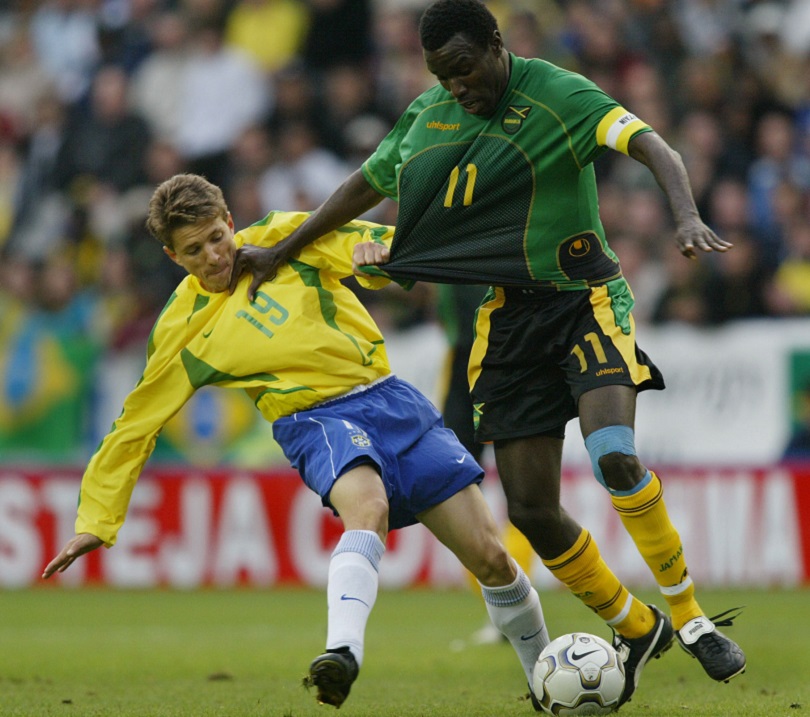
Denílson (sub)
Now 39, he's a popular commentator on Brazilian television and is married to Brazilian soap star Luciele di Camargo
The sultan of step-overs didn't start a match in Japan and South Korea but was usually the first port of call when Scolari wanted to reshuffle his pack during games. He snuck on in the dying minutes in Yokohama, long after the game had been won.
This was as good as it got for Denílson. He fell out of favour at Real Betis and his career took a turn for the nomadic, with spells in France, Saudi Arabia, USA, China and Greece yielding little apart from stamps in his passport. He briefly looked set to join Bolton in 2009 but the deal fell through.
Now 39, he's a popular commentator on Brazilian television and is married to Brazilian soap star Luciele di Camargo.
Luiz Felipe Scolari
Paternal and protective, Scolari saw the World Cup win as the perfect springboard for a long-overdue tilt at glory in Europe. But he was something of a nearly man during his six years with Portugal, who lost in the final of Euro 2004 and were knocked out at the semi-final stage of the 2006 World Cup.
Underwhelming spells at Chelsea and Budyonkor in Uzbekistan followed, and Scolari returned to his homeland with Palmeiras, guiding them to success in the Brazilian Cup before being sacked in September 2012 after a poor run in the league.
Despite that, he made a stunning return to the Brazil setup later that year, charged with steadying the ship before the 2014 World Cup. He won favour by leading the Seleção to Confederations Cup glory, but Germany put paid to his hopes of a second win on the biggest stage, dealing a savage blow to his reputation in the process.
Scolari's now managing Chinese side Guangzhou Evergrande, with whom he won the Asian Champions League in 2015.
